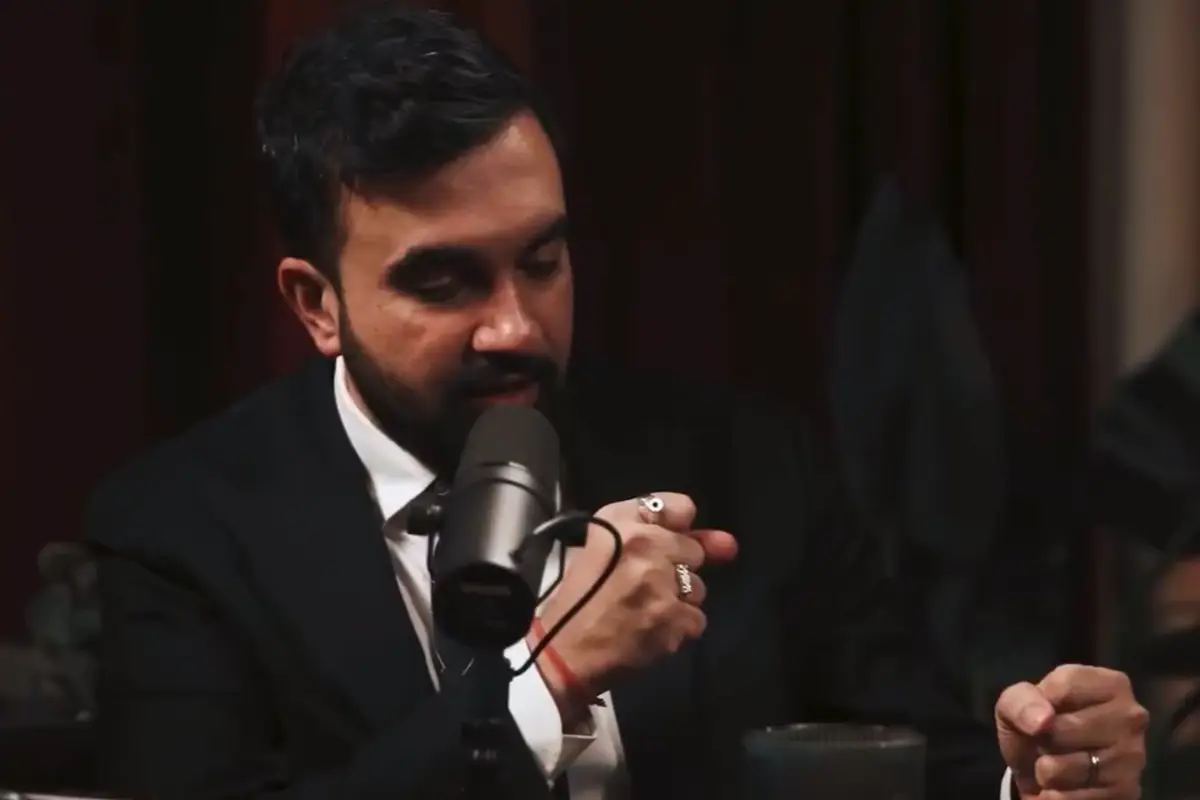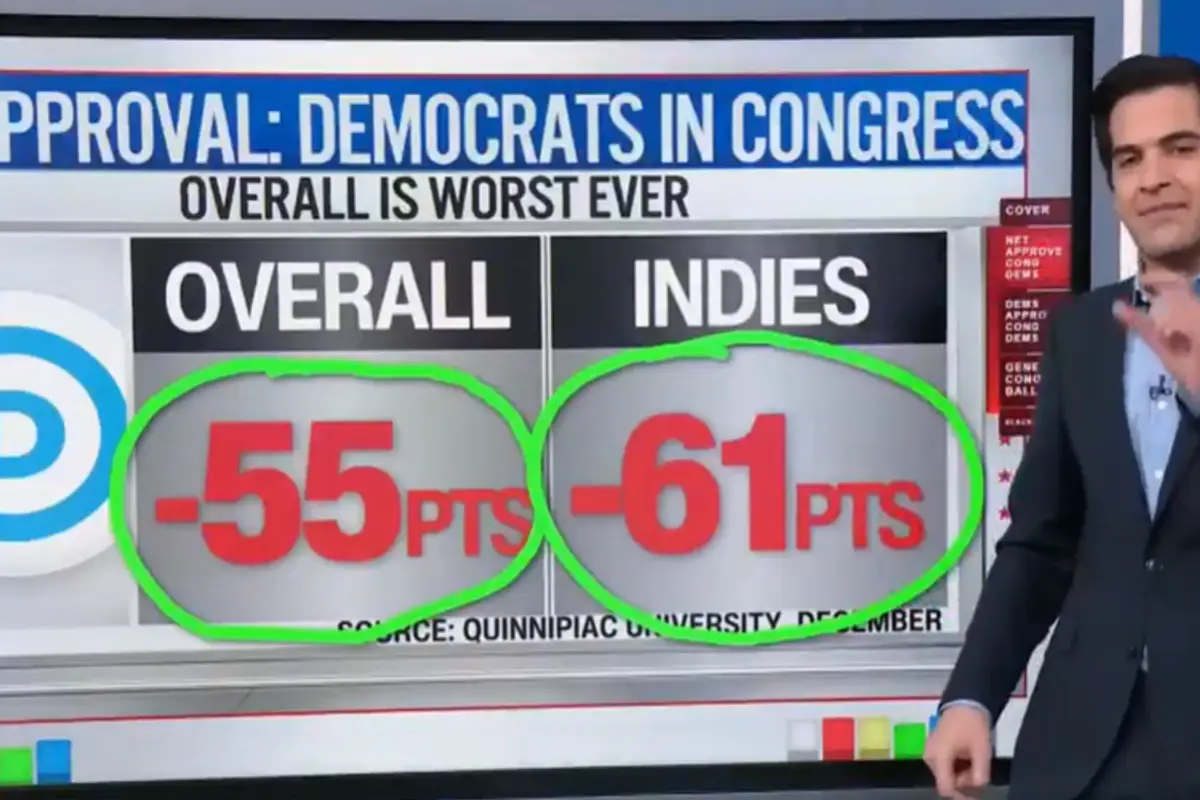
×
Please verify
Each day we overwhelm your brains with the content you've come to love from the Louder with Crowder Dot Com website.
But Facebook is...you know, Facebook. Their algorithm hides our ranting and raving as best it can. The best way to stick it to Zuckerface?
Sign up for the LWC News Blast! Get your favorite right-wing commentary delivered directly to your inbox!
CultureJanuary 27, 2022
Five Works of Fiction the Left Would Rather You Not Read (Which is Why You Have To)
I put this list together to be shared at a later date, but it would seem timely as one university decided to literally go full-Orwellian on Orwell, and a school board just banned Maus today.
The left is fond of “burning” books it doesn’t like. They canceled Dr. Seuss and even targeted American classics like To Kill a Mockingbird and The Adventures of Huckleberry Finn, both on the grounds that they are wildly racist, which—and they’d know this if leftists were smart enough to read—couldn’t be further from the truth.
But the left hates fiction just as much as they hate non-fiction because they hate Truth, and fiction provides an outlet for artists to examine Truth without having to remain entirely ensconced in reality because when these Truths become reality, they are bloody, violent, and difficult for us to even imagine.
So, while the left would rather you sit on the couch flipping through insane and ultimately mentally damaging TikTok videos, I would suggest picking up a few books that tear the mask off the left’s malevolent plots to destroy liberty.
1. 1984 and Animal Farm by George Orwell
Orwell had to make the list, right? I’m tackling these two because they both deserve to be mentioned, but to toss Orwell on the list twice would mean one less writer on the list, and—who am I kidding—I just like listing off good books. Certainly, Orwell was obviously concerned about many of the themes he writes about in these two books, but I don’t believe he could have imagined just how prophetic they would become. 1984 imagines the UK as a totalitarian dystopia under the rule of The Party, with Big Brother at its head. From the revising of history, the destroying of controversial texts, and the prosecution of thoughtcrime, there’s something unnerving about the way Orwell depicts what is quickly becoming our present reality. Likewise, Animal Farm is a satirical piece, parodying the authoritarian socialist state. Pay close attention to the pigs and their dogs. Neither of these books is very long. My copy is actually one book with both stories.
“WAR IS PEACE. FREEDOM IS SLAVERY. IGNORANCE IS STRENGTH.”
2. Fahrenheit 451 by Ray Bradbury
Bradbury homes in on the notion of extreme censorship, reimagining the fire department as an organization not tasked with putting out fires but setting them and, more importantly, setting them for the purpose of destroying what Orwell called wrongthink. Books and real thinking, emotions, and feelings have become verboten in Bradbury’s world, replaced by technology, superficiality, and all-encompassing entertainment, and those who would attempt to pull away from this sterile lifestyle are swiftly dealt with.
“So now do you see why books are hated and feared? They show the pores in the face of life. The comfortable people want only wax moon faces, poreless, hairless, expressionless. We are living in a time when flowers are trying to live on flowers, instead of growing on good rain and black loam. Even fireworks, for all their prettiness, come from the chemistry of the earth. Yet somehow we think we can grow, feeding on flowers and fireworks, without completing the cycle back to reality.”
3. Brave New World by Aldous Huxley
There’s quite a bit of criticism amongst academia that attempts to argue Huxley’s book is anti-capitalist. The problem with this reading is that one must completely throw out any notion of what capitalism before reading it in such a way. That being said, Huxley was no fan of capitalism and very well might have been trying to write something to demonstrate that sentiment, but like many who are against the free-market capitalist system, he failed to understand what it is and it shows in the book. No, instead, this book follows in the same vein as Bradbury and Orwell in that the government erases previous history, art, literature, but in Huxley’s narrative, the addition of the leftist libertine attitudes also come to the fore. Huxley imagines a world in which people drug themselves to escape difficult emotions, conduct themselves promiscuously to avoid the “issues” inherent when monogamy is the rule, and those who would not choose to participate in the madness of this society are treated as something strange. Sound familiar?
“’But do you like being slaves?’ the Savage was saying as they entered the Hospital. His face was flushed, his eyes bright with ardour and indignation. ‘Do you like being babies? Yes, babies. Mewling and puking,’ he added, exasperated by their bestial stupidity into throwing insults at those he had come to save. The insults bounced off their carapace of thick stupidity; they stared at him with a blank expression of dull and sullen resentment in their eyes. […] ‘Don’t you want to be free and men? Don’t you even understand what manhood and freedom are?’”
4. The Trial by Franz Kafka
Easily the shortest story on the list, but a book need not be long to provide an important message about life. If you’ve heard the phrase “Kafka trap,” this is the book from which it derives its meaning. Imagine being charged with a crime. They won’t tell you what it is or when you’ll stand trial. You have no idea what you did or when. All you know is that you must now defend yourself from some unknown charge and prove your innocence, and failure to do so will find you suffering some unknown but terrible punishment. That’s The Trial. The connection to contemporary cancel culture makes this book worthwhile, but even more, the manner in which the protagonist is treated is reminiscent of how Critical Race Theory works, presently. You don’t know what you did, but you’re guilty of racism. Prove to us you’re not a racist, and if you can’t, you’re a racist.
“’You’re under arrest, aren’t you.’ ‘But how can I be under arrest? And how come it’s like this?’ ‘ Now you’re starting again,’ said the policeman, dipping a piece of buttered bread in the honeypot. ‘We don’t answer questions like that.’ ‘You will have to answer them,’ said K. ‘Here are my identification papers, now show me yours and I certainly want to see the arrest warrant.’ ‘Oh, my God!’ said the policeman. ‘In a position like yours, and you think you can start giving orders, do you? It won’t do you any good to get us on the wrong side, eve if you think it will – we’re probably more on your side than anyone else you know!’”
5. Atlas Shrugged by Ayn Rand
I had to save the best for last! Atlas Shrugged has everything: the socialist destruction of America, political corruption, academic duplicity and ignorance; it really is a book that should be required to be read in high school. I will, however, warn you that it is a dense read and quite long. Rand’s prose are not everyone’s cup of tea, but the narrative is incredible and eminently instructive. Every page illustrates some aspect of societal decay we are currently experiencing, and, by the end of the book, I promise, you’ll look around and see the entire world in a different light. I can’t promise it will be a brighter one, but you’ll see far more than you ever have before. That’s the beauty of remarkable works of fiction.
“Do you think they are taking you back to the dark ages? They are taking you back to darker ages than your history has known. Their goal is not the era of pre-science, but the era of pre-language. Their purpose is to deprive you of the concept on which man's mind, his life and his culture depend: the concept of an objective reality."
Bonus: Doctor Faustus by Thomas Mann
Now, this book will definitely take a more practiced reader to see the ways in which it reflects contemporary American society and the effects the left is having on it, but I assure you, the message is there. The is an allegory of the rise of Nazi fascism. Most scholarship on the book attempts to argue that the rise of fascism in Mann’s novel is linked to capitalism, but like Huxley, it requires a rejection of the tenets of free-market capitalism to read it as such.
“It was an old-new world of revolutionary reaction, in which the values bound up with the idea of the individual – shall we say truth, freedom, law, reason? – were entirely rejected and shorn of power, or else had taken on a meaning quite different from that given them for centuries.”
The Louder with Crowder Dot Com Website is on Instagram now! Follow us at @lwcnewswire and tell a friend!
From Your Site Articles
- WATCH: Drag Queen Strips for Kids at Drag Queen Story Time. How ... ›
- Germany Returning to Totalitarian Era - Louder With Crowder ›
- High School Pushes CRT on Students, May Encourage Witchcraft ... ›
- Peterson Resigns Professorship: 'A Corrupt Enterprise' - Louder ... ›
- Hunter Biden, Therapist Joke About Joe Biden Having Dementia ... ›
- Mayor Gives Ohio School Board Choice: Resign or Be Charged ... ›
- Children's Book Uses 3 Little Pigs to Explain Gun Control - Louder ... ›
- Author Claims Kyle Rittenhouse Killed Two 'Black Men' - Louder ... ›
- Author Who Published Lie About Kyle Rittenhouse Lashes Out ... ›
- Five Books to Arm Yourself Against the Left's Insanity - Louder With ... ›
- Animal Rights Activist Storms NBA Court, Immediately Gets Put Down Like a Calf By Security - Louder With Crowder ›
- Woman attacked by fox, it looks like a Monty Python sketch - Louder With Crowder ›
Latest
Don't Miss





